What Americans were really objecting to had nothing to do with constitutional principles. their objection was not to Parliament’s constitutional right to levy certain kinds of taxes as opposed to others, but to its effort to collect any.
BERNARD BAILYNWhat gave transcendent importance to the aggressiveness of power was the fact that its natural prey, its necessary victim, was liberty, or law, or right.
More Bernard Bailyn Quotes
-





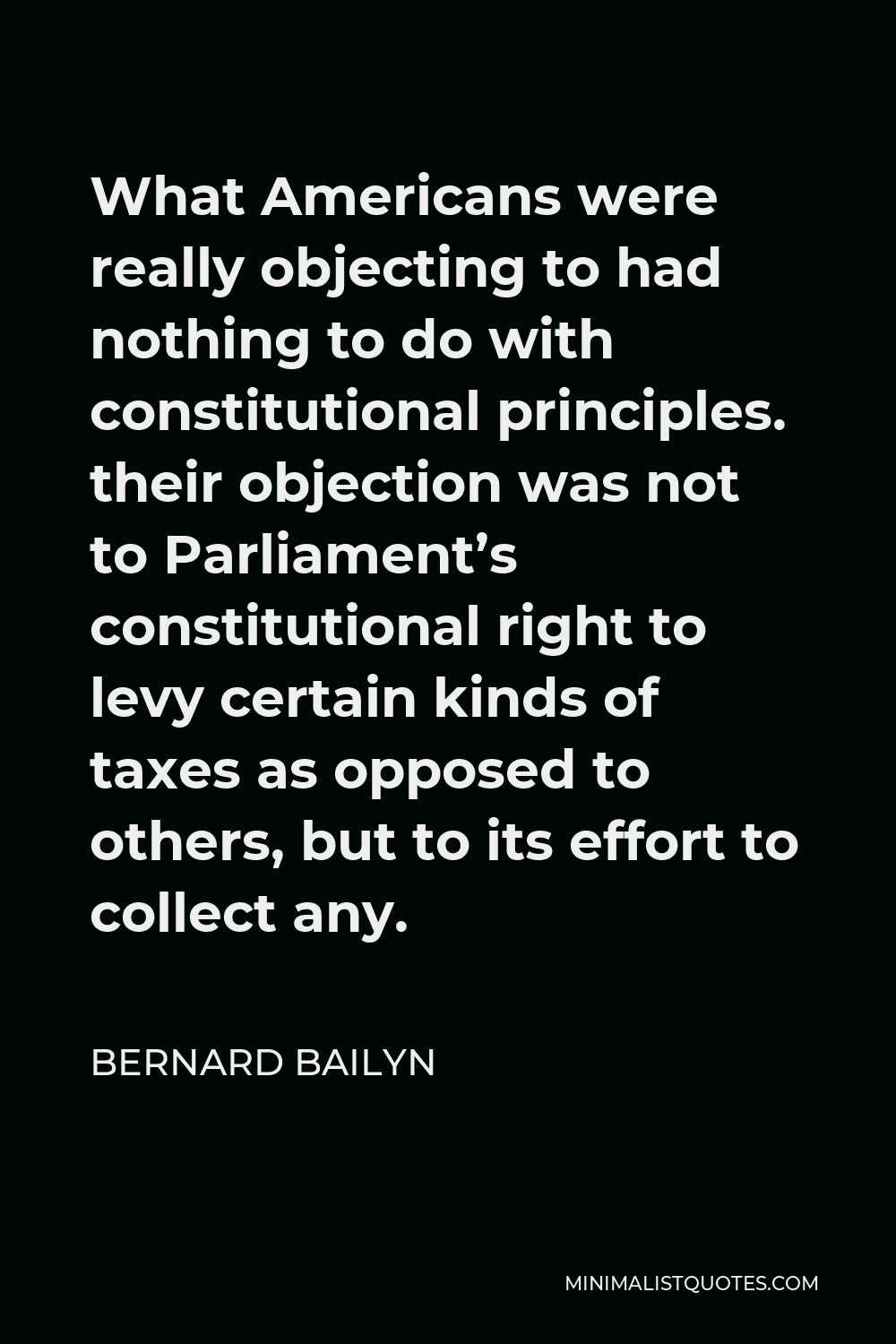
-






Not only by Americans themselves but by enlightened spokesmen of reform, renewal and hope wherever they may be-in London coffeehouses, in Parisian salons, in the courts of German princes.
BERNARD BAILYN -






Instantly available without continuous presence is probably the best role a mother can play.
BERNARD BAILYN -






What were once felt to be defects-isolation, institutional simplicity, primitiveness of manners, multiplicity of religions, weaknesses in the authority of the state-could now be seen as virtues.
BERNARD BAILYN -





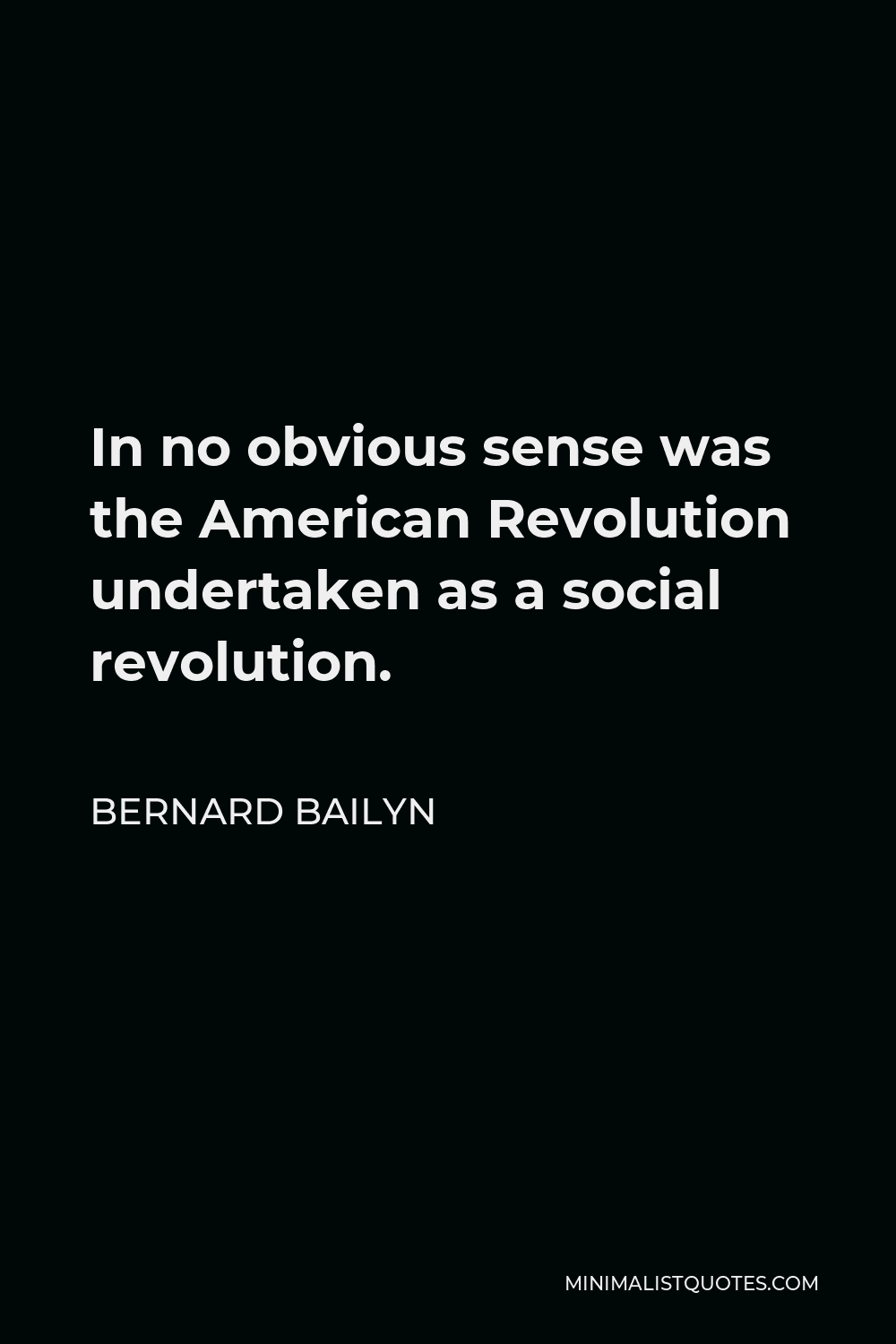
In no obvious sense was the American Revolution undertaken as a social revolution.
BERNARD BAILYN -





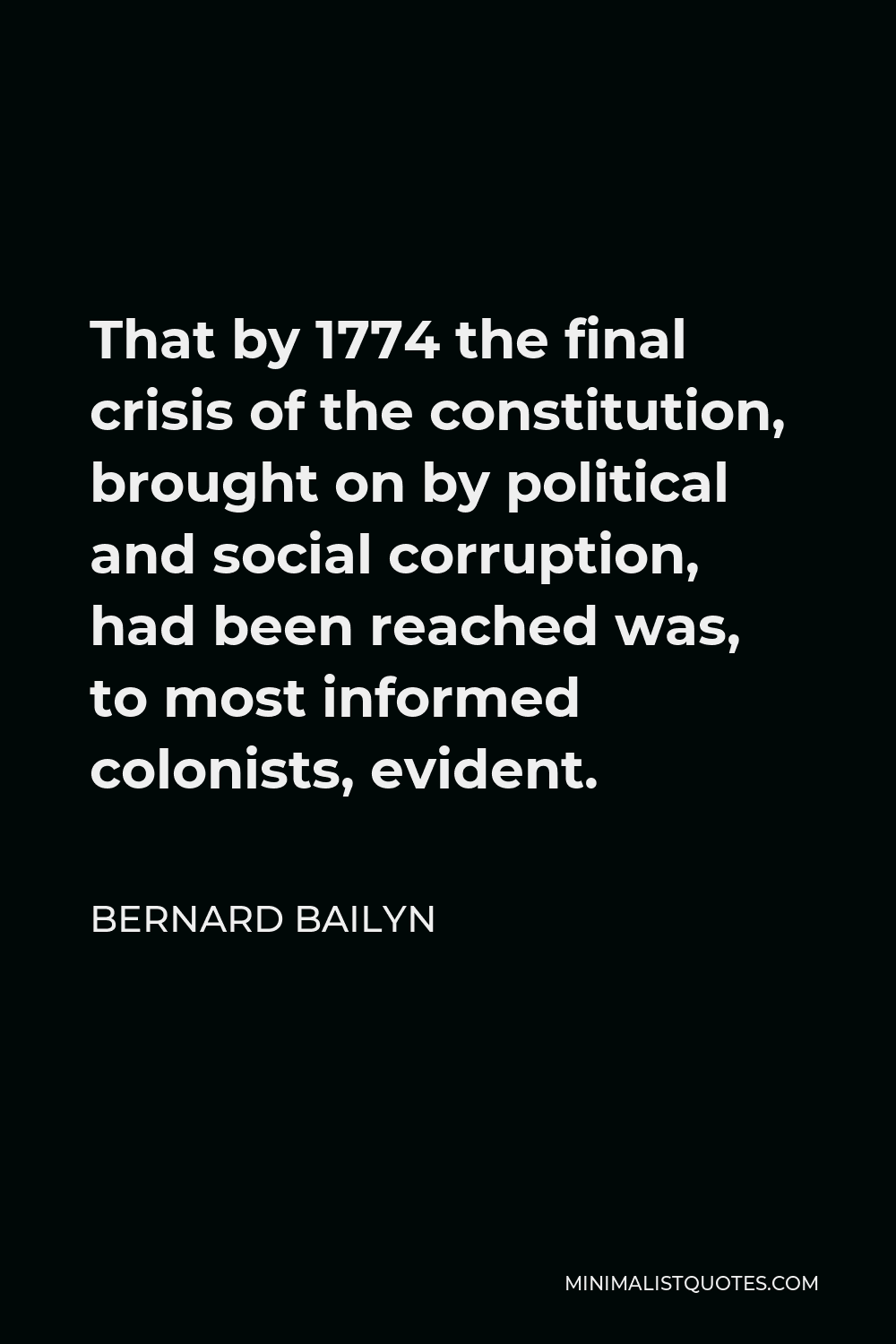
That by 1774 the final crisis of the constitution, brought on by political and social corruption, had been reached was, to most informed colonists, evident.
BERNARD BAILYN -





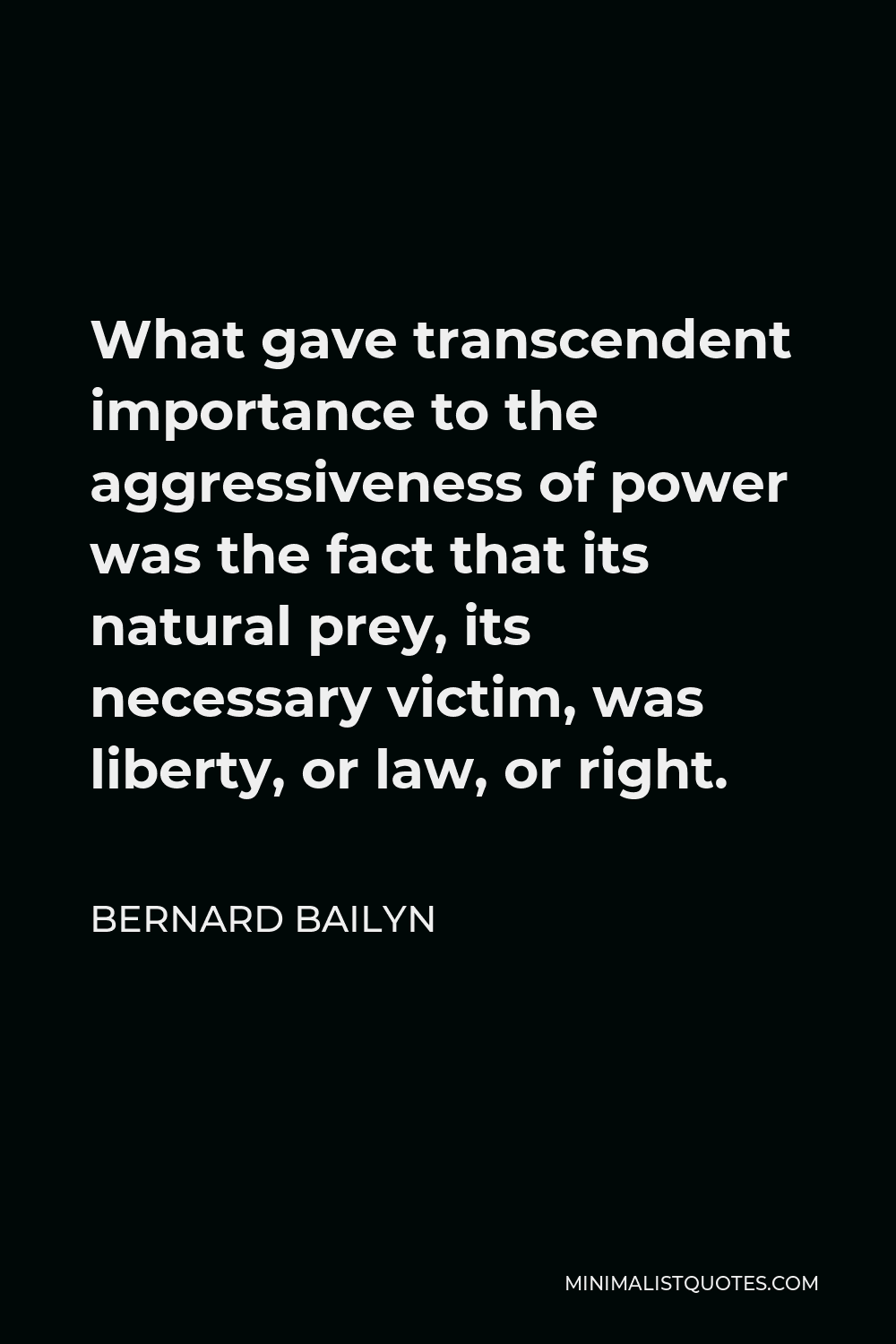
What gave transcendent importance to the aggressiveness of power was the fact that its natural prey, its necessary victim, was liberty, or law, or right.
BERNARD BAILYN -







Defiance to constituted authority leaped like a spark from one flammable area to another, growing in heat as it went.
BERNARD BAILYN -






The idea of sovereignty current in the English speaking world of the 1760’s was scarcely more than a century old. It had first emerged during the English Civil War, in the early 1640’s, and had been established as a canon of Whig political thought in the Revolution of 1688.
BERNARD BAILYN -





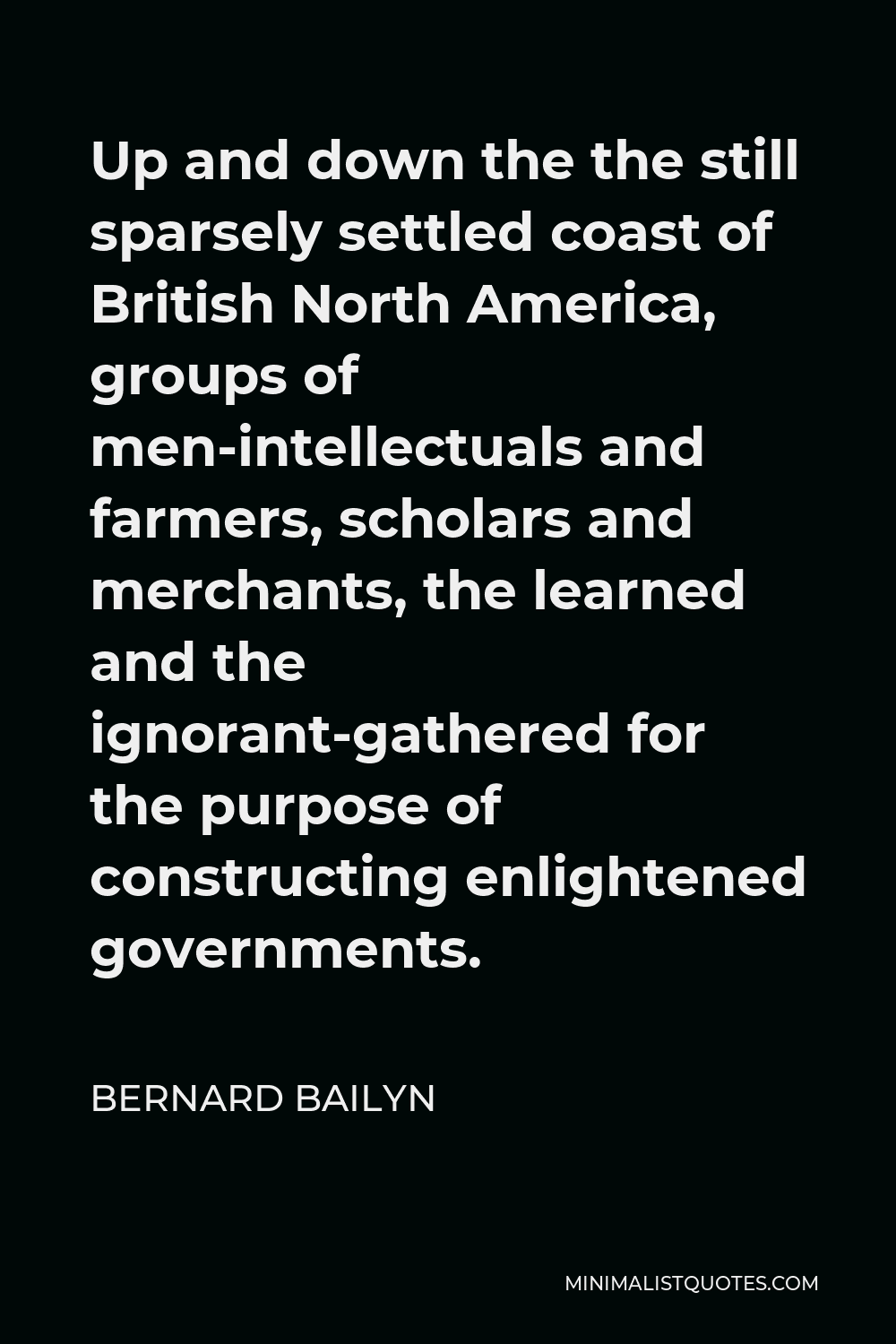
Up and down the the still sparsely settled coast of British North America, groups of men-intellectuals and farmers, scholars and merchants, the learned and the ignorant-gathered for the purpose of constructing enlightened governments.
BERNARD BAILYN -






The categories within which the colonists thought about the social foundations of politics were inheritances from classical antiquity, reshaped by seventeenth century English thought.
BERNARD BAILYN -






Emerging first in the form of denunciations of standing armies in the reign of William III, left an indelible imprint on the “country” mind everywhere in the English-speaking world.
BERNARD BAILYN -





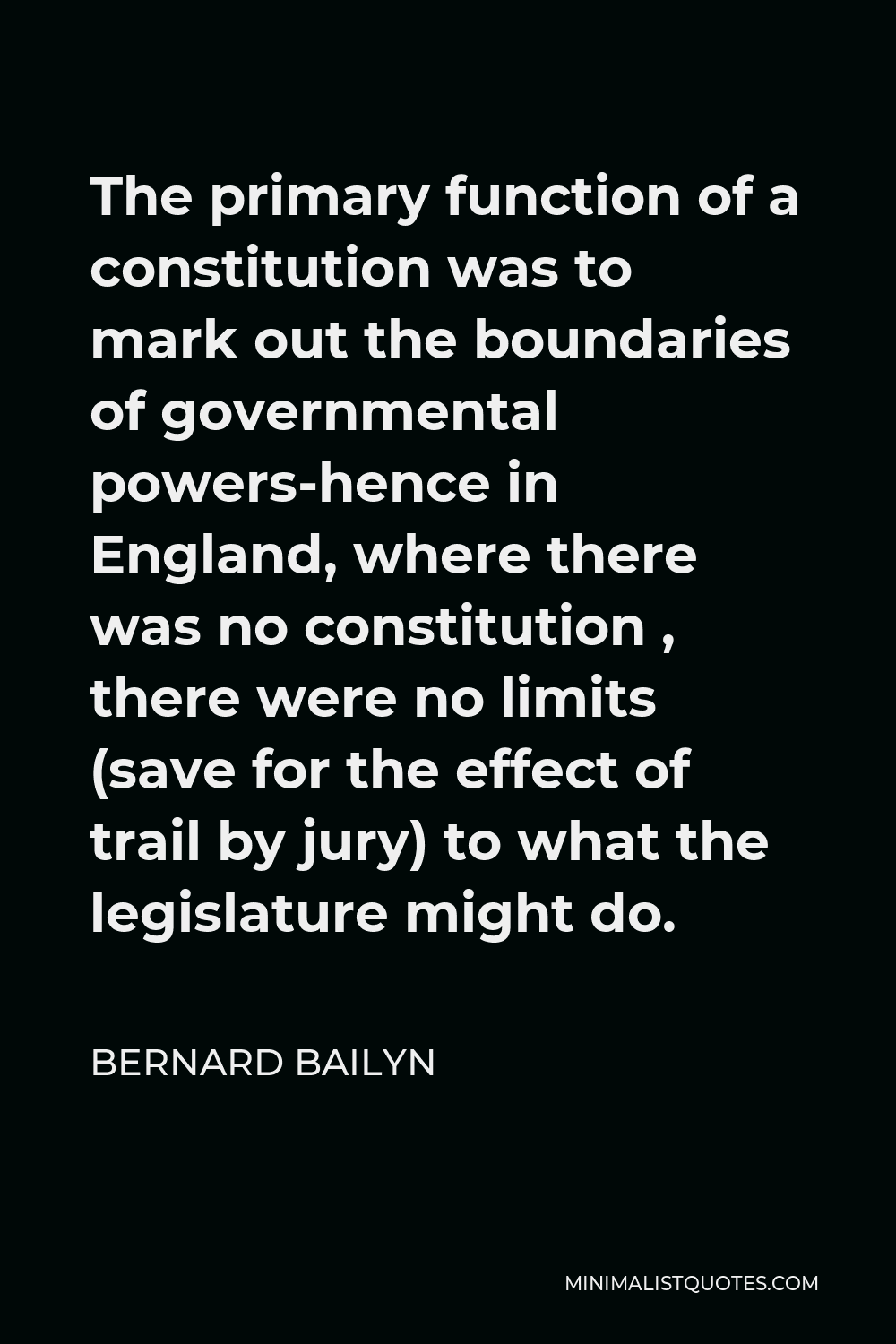
The primary function of a constitution was to mark out the boundaries of governmental powers-hence in England, where there was no constitution , there were no limits (save for the effect of trail by jury) to what the legislature might do.
BERNARD BAILYN -





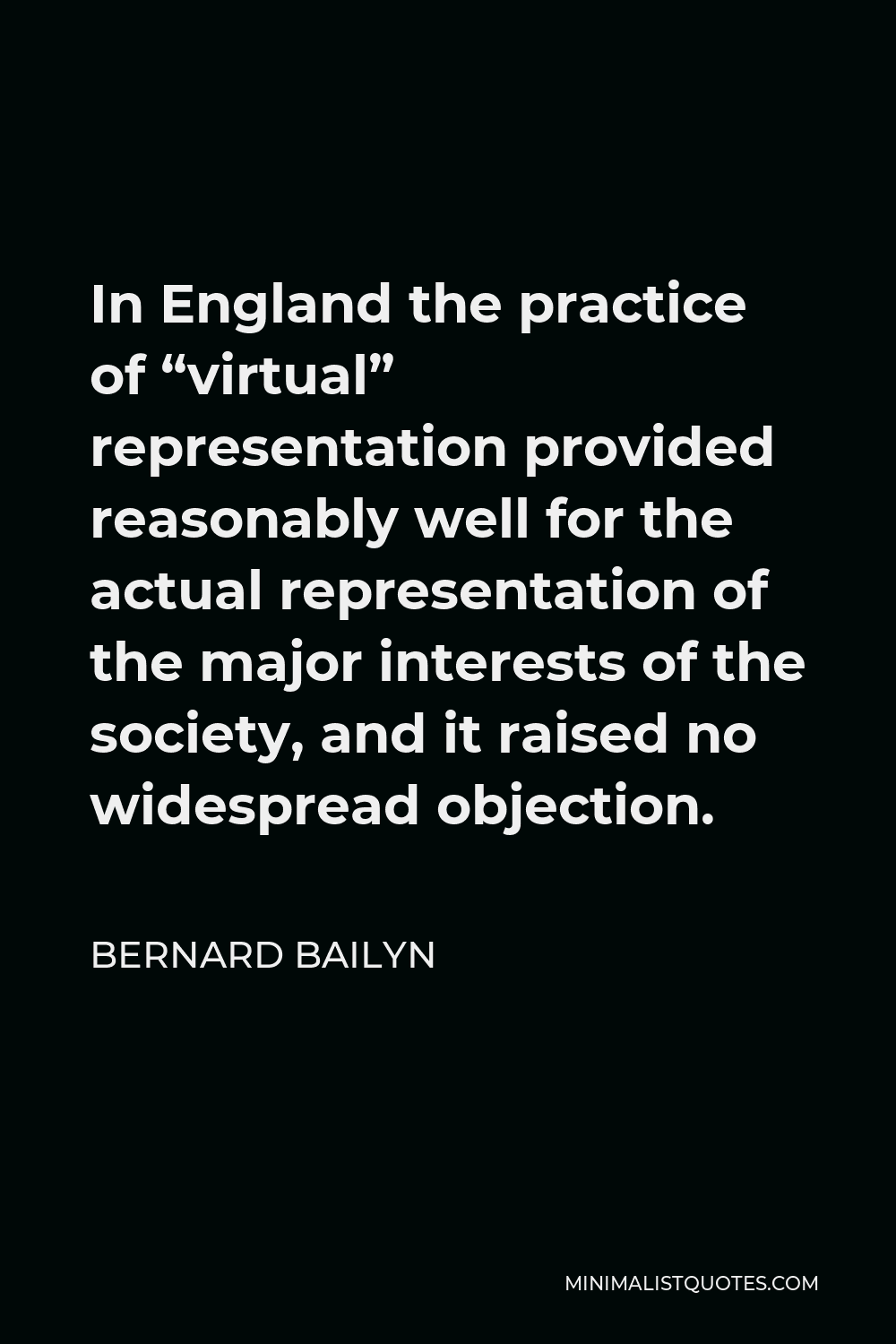
In England the practice of “virtual” representation provided reasonably well for the actual representation of the major interests of the society, and it raised no widespread objection.
BERNARD BAILYN -






The full bibliography of pamphlets relating to the Anglo-American struggle published in the colonies through the year 1776 contains not a dozen or so items but over four hundred.
BERNARD BAILYN -






Whatever deficiencies the leaders of the American Revolution may have had, reticence, fortunately, was not one of them.
BERNARD BAILYN






